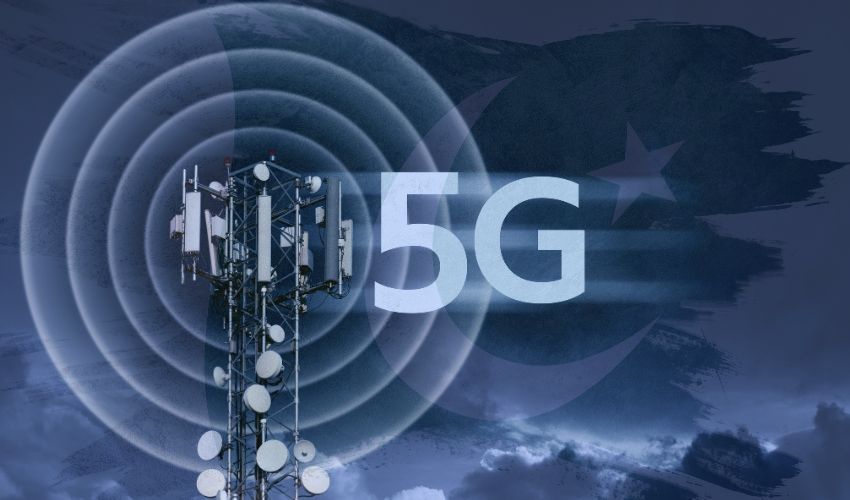The Ministry of IT and Telecom has unveiled a detailed timeline for the rollout of 5G services in Pakistan. Official documents presented in Parliament reveal that telecom operators will initiate 5G deployment across the country starting July 2025. This development signifies a major leap forward for the nation's technological infrastructure, but potential hurdles remain, such as regulatory approvals and spectrum auctions.

Timeline for 5G Rollout
The Ministry’s roadmap outlines a series of crucial milestones leading up to the deployment of 5G services:
| Month | Action Item |
|---|---|
| February 2025 | Recommendations submitted to the Spectrum Advisory Committee |
| March 2025 | Finalization of policy reforms on spectrum pricing and taxation |
| April 2025 | Approval of policy directive by the federal government |
| May 2025 | Auction of 3500 MHz, 2600 MHz, 2300 MHz, and 700 MHz spectrum |
| June 2025 | Telecom operators to prepare for rollout |
| July 2025 | Launch of 5G services across the country |
Key Spectrum Bands for 5G Deployment
The upcoming spectrum auction will play a critical role in the successful deployment of 5G. The following bands will be available for bidding:
-
3500 MHz: Ideal for high-speed data transfer.
-
2600 MHz: Balances coverage and capacity.
-
2300 MHz: Suitable for urban areas with high device density.
-
700 MHz: Provides extensive coverage in rural and suburban areas.
Policy Reforms and Approvals
Recommendations by Consultants (February 2025)
Expert consultants will submit their proposals to the Spectrum Advisory Committee. These recommendations will focus on:
-
Pricing models for spectrum allocation.
-
Conditions for spectrum trading.
-
Taxation reforms to incentivize telecom operators.
Finalization by the Spectrum Advisory Committee (March 2025)
The committee will finalize comprehensive policy reforms to ensure:
-
Fair and transparent spectrum allocation.
-
Support for small and large telecom operators.
-
Efficient taxation policies to reduce operational costs.
Federal Government Approval (April 2025)
The federal government will approve the policy directive to:
-
Provide a legal framework for 5G operations.
-
Enable a smooth auction process in May 2025.
Challenges to 5G Launch
PTCL-Telenor Merger Approval
The 5G launch could face delays if the Competition Commission of Pakistan (CCP) does not approve the proposed PTCL-Telenor merger. The merger’s approval is crucial for:
-
Pooling resources for infrastructure development.
-
Enhancing market competition and service quality.
High Spectrum Costs
Telecom operators have raised concerns about high spectrum prices, which could:
-
Limit participation in auctions.
-
Increase the cost of 5G services for consumers.
Infrastructure Readiness
5G requires significant upgrades to existing telecom infrastructure, including:
-
Installation of new base stations.
-
Expansion of fiber-optic networks.
-
Ensuring nationwide connectivity.
Benefits of 5G for Pakistan
Economic Growth
5G adoption is expected to contribute significantly to Pakistan’s GDP by enabling:
-
New business opportunities in tech and innovation.
-
Improved efficiency in industries such as agriculture, healthcare, and manufacturing.
Enhanced User Experience
Users will benefit from:
-
Faster download and upload speeds.
-
Seamless streaming and gaming experiences.
-
Improved connectivity for IoT devices.
Digital Inclusion
5G technology will help bridge the digital divide by:
-
Providing high-speed internet in rural and underserved areas.
-
Enabling remote learning and telemedicine services.
Related Articles
-
Ilmkidunya 26/Jun/2025
How to Prepare for Competitive Exams Effectively
-
Ilmkidunya 10/Jun/2025
From Curiosity to Career A Purpose-Driven Journey Through the 4D Growth Framework
-
Ilmkidunya 10/Jun/2025
The Ethics of Artificial Intelligence in Everyday Life
-
Ilmkidunya 30/May/2025
Over 1 Billion Users: Meta AI Sets New Standard in AI Technology
-
ilmkidunya 27/May/2025
AI in Education – Will Students Stop Doing Homework in the Future?
-
ilmkidunya 27/May/2025
Tech Skills That Will Never Go Out of Demand
-
Ilmkidunya 12/May/2025
Mind Mapping for Smarter Studying: A Visual Learning Guide
-
Ilmkidunya 09/May/2025
How Computers Might Solve Problems We Don’t Even Understand Yet
-
Ilmkidunya 08/May/2025
Solving Compatibility Issues in Cross-Platform App Development
-
Ilmkidunya 08/May/2025
How Agile Methodologies Solve Project Management Problems

.gif)









.png)

